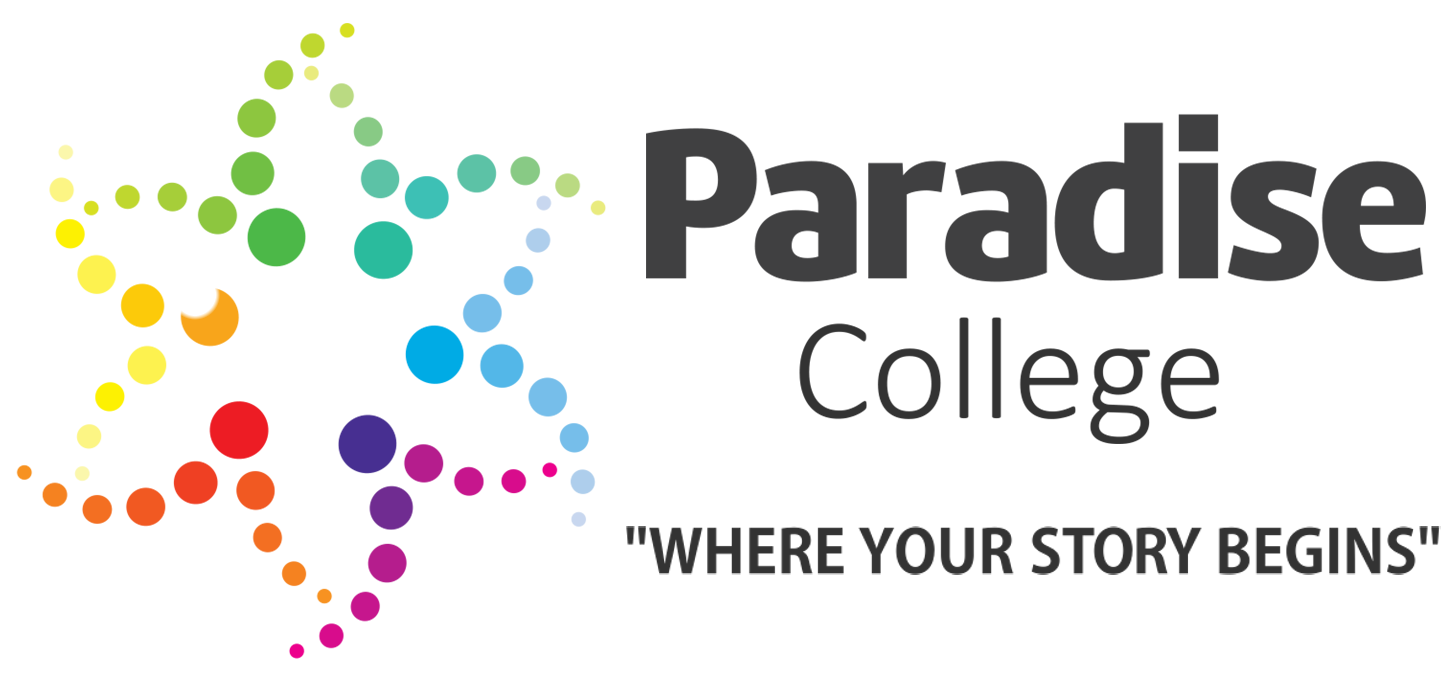Objective
We aim to support the well-being of all students by offering an appropriate and comprehensive accessible school counseling program. The school counseling program is built on the importance of cultivating self-care, creating healthy conversations, appreciating personal differences, caring, and advocating for others. Students will be able to recognize personal values, set healthy boundaries, and be empowered to use skills learned to navigate self-growth.
1. Implementation
Paradise Counseling services are implemented with a significant emphasis on confidentiality and sensitivity of each case that is brought to the attention of the student counselor. Take note of the following steps.
1.1 Referrals
Referrals may be made in one of four ways at school:
- Principal/Deputy Principal/Classroom Teacher
- Self-referral by the student himself/herself
- Parent
- Nurse
Once referred, the Student Counselor will:
- arrange consultations with parents, the teacher, the nurse, or the student who has made the referral. Parent/Guardian consent will be obtained for the School Counselor to start assessment and intervention with students from Gr 4 to Gr 6. Consent must be on paper, and forms are available in the counselor’s office. Students from Gr 7 to 12 can perform self-referral by themselves without their parents’ consent.
- undertake psychological assessments for students with academic, behavioral, emotional, social, and psychological difficulties.
- develop interventions based on recommendations of assessments and consultations. Feedback (with the consent of the student) will be given to relevant staff and parents upon need.
1.2. Referrals for outside counseling
Where the school counselor in its discretion determines it is appropriate, a student (through his/her parents) may be requested to attend counseling by external care providers. The rationale for such a request may be that the student requires an intervention that is not deemed appropriate for the student counselor to provide. This may occur for several reasons, such as the nature of the required intervention or the degree of involvement required. In making such a request, the following guidelines are to be followed:
- The request will be discussed with the student and his/her parent/s and the rationale explained.
- The school counselor will facilitate the referral if requested and, with consent, will be entitled to provide such reports to the external care provider as are in the school’s opinion reasonably necessary.
- The school counselor will be entitled to receive reports from the external care provider as are reasonably necessary to satisfy the student counselor that the issues that required the attendance at the external care provider have been satisfactorily resolved or are being managed by the school.
1.3 Duration/Frequency of Consultation
Unless specifically requested by a student, consultation with the School Counsellor will generally be during class time. Hence, the likely duration of each consultation will be for the duration of a lesson. The frequency of consultation will be dependent on the nature of the issues as determined by the Student Counsellor.
2. Confidentiality
The student counselor will keep all information confidential but with possible exceptions. Students will be informed that discussions with the Student Counselor are in confidence, except where in the reasonable opinion of the School Counsellor:
- there is a concern that the student will cause him/herself harm
- there is a concern that the student will cause harm to another person
- the student discloses criminal activity such that it may impact on the welfare of the student or others or the reputation of the school
- the student discloses that he/she has suffered harm or the counselor reasonably suspects that the student has suffered harm, sexual abuse, or neglect.
3. Parents
The student will be informed to facilitate good communication between school and home. However, in situations where the student specifically requests that parents not be informed (given that the reason is substantial at the School counselor’s discretion), the student may be seen without the knowledge of his/her parents only if the School Counselor and the Principal are satisfied that it is in the best interests of the student that the parents be informed. If appropriate, the student will be encouraged to reconsider their position by providing the appropriate rationale for parental involvement.
3.1 At Paradise College, the student counselor will help students who may be struggling with:
- Bullying
- Academic pressure/high expectations
- Anxiety
- Depression
- Parental divorce or separation
- Grief
- Social Skills
- Peer pressure
- Sibling rivalry
- Perfectionism
- Trauma
- Self-harm
- Drug and/or alcohol
- Physical/sexual abuse
- Mood disorders
- Racism, tolerance, and acceptance
3.2 What are some symptoms/ signs I should not neglect as a parent?
If there is a continuous pattern in the following symptoms outlined on your child, make it your duty to seek help/make a referral.
- Extreme shyness and difficulty engaging with others
- Trouble in managing strong emotions (extreme anger, excessive crying)
- Difficulty transitioning from one activity to the other
- Forgetfulness
- Frequent complaints of feeling sick
- Difficulty focusing
- Missed deadlines
- Poor academic performances
- Apathy (why try) lack of effort
- Perfectionist tendencies
- Physical and Verbal aggression
4. Role of the Student Counselor
The student counselor’s role is to form and maintain a trusting relationship with students not to discipline. If a student is sent to the student counselor after breaking a rule or other incident, they will discuss the feelings that came up, the choices the student made, the consequences of that choice, possibilities for restorative action, and what better choices could be made in future situations. The student may still receive sanctions such as their behavioral points deducted. However, the counselor’s primary role is to promote positive choices for the future through a strengths-based approach.
There is a limit to our services, the student counselor does not provide therapy, psychological diagnoses, or medical diagnoses. Secondly, families are kindly asked also to refrain from requesting student counselor involvement in any legal proceedings involving family disputes.
5. Accountability
The School Counselor has both professional and administrative accountabilities.
5.1 Professional Accountabilities – Case Notes and Record-Keeping
Appropriate records must be maintained; as a minimum, a record of the student’s name, the date of each consultation, those present at the consultation, and a brief account of the main issues discussed. Similar records should also be kept regarding meetings and/or telephone conversations with parents, staff, and external service providers regarding the student.
5.2 Administrative Accountabilities
To ensure appropriate communication and accountability within the school, the School Counselor reports to the principal. The School Counselor will meet with the principal on a fortnightly basis (unless otherwise agreed) to provide feedback generally on the provision of counseling within the school without mentioning names.
6. Records/ Access
The records of the School Counselor are at all times the property of Paradise College will remain with the school and will be securely and confidentially archived under the guidance of the principal.

